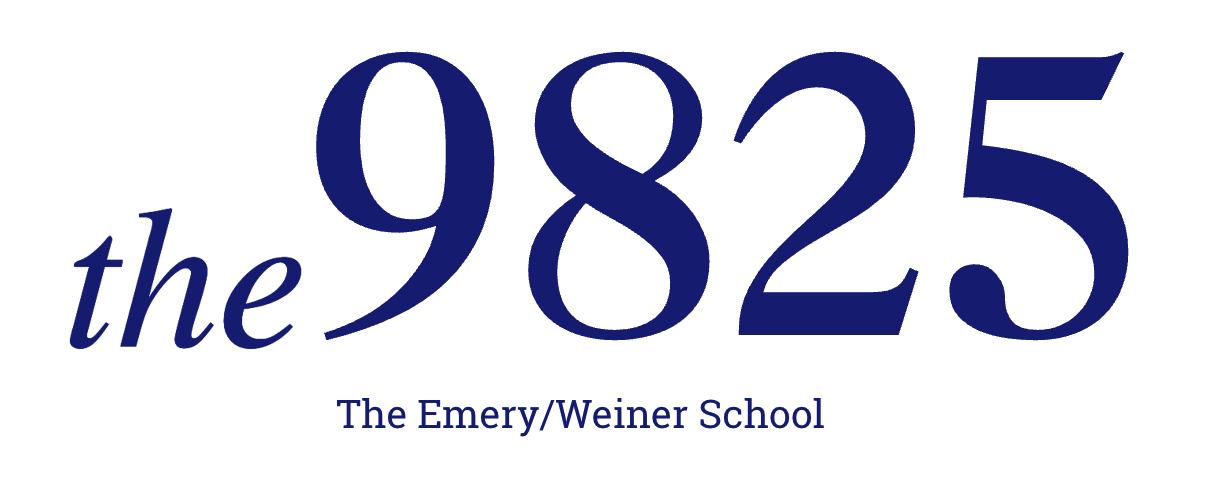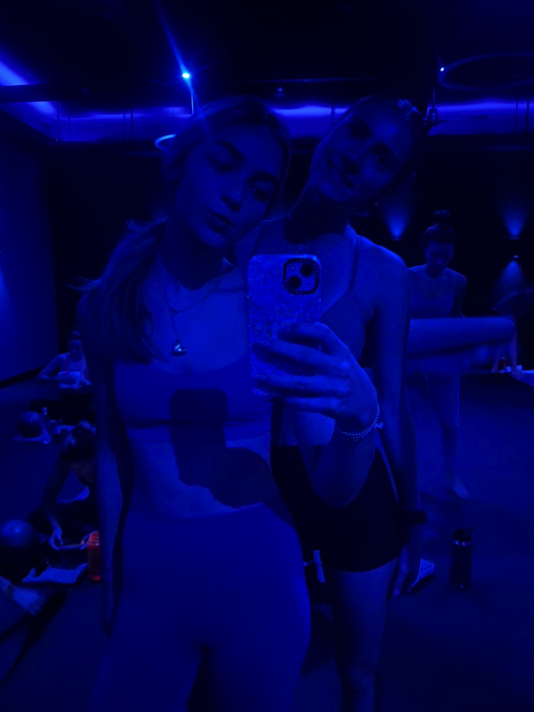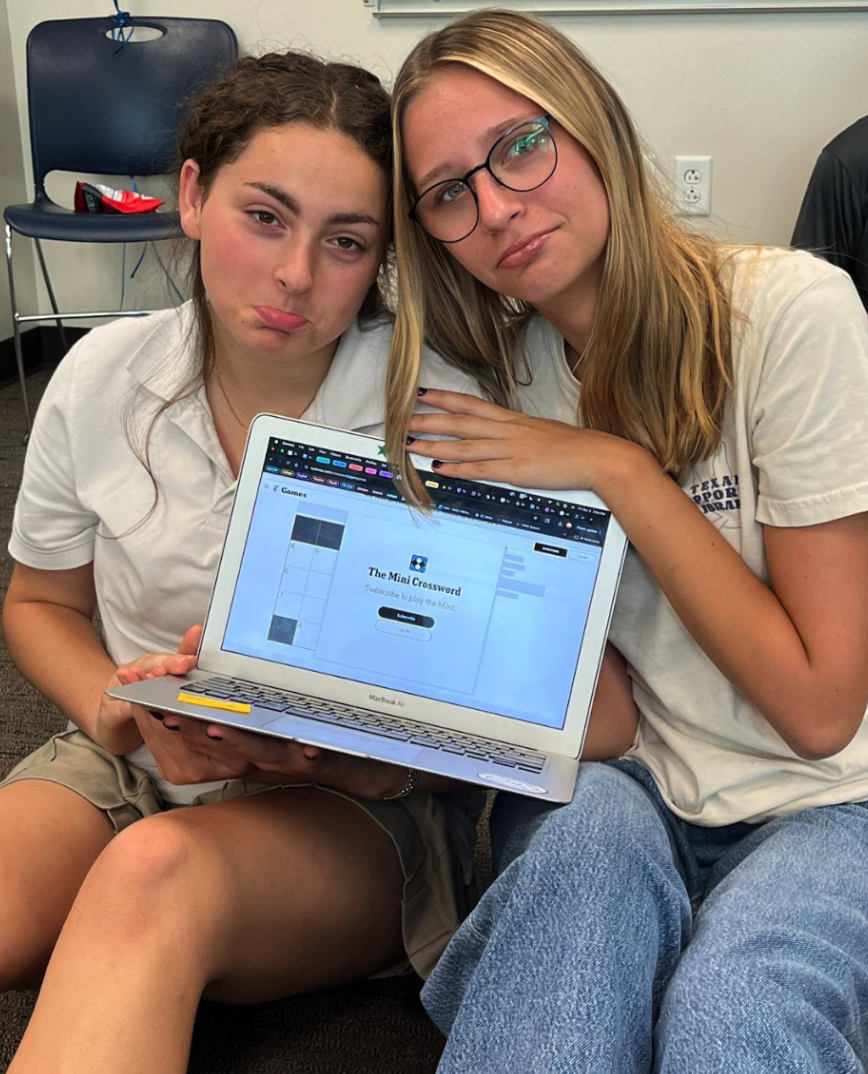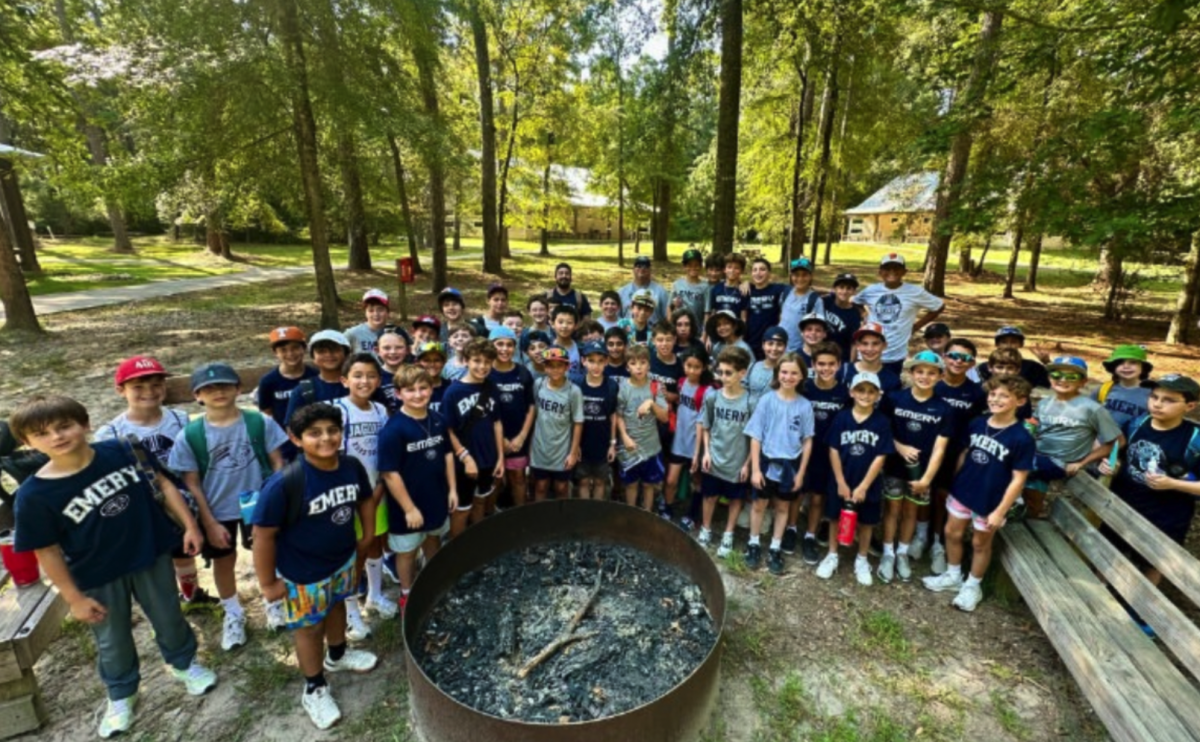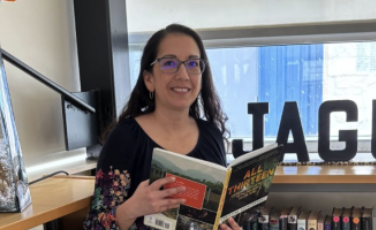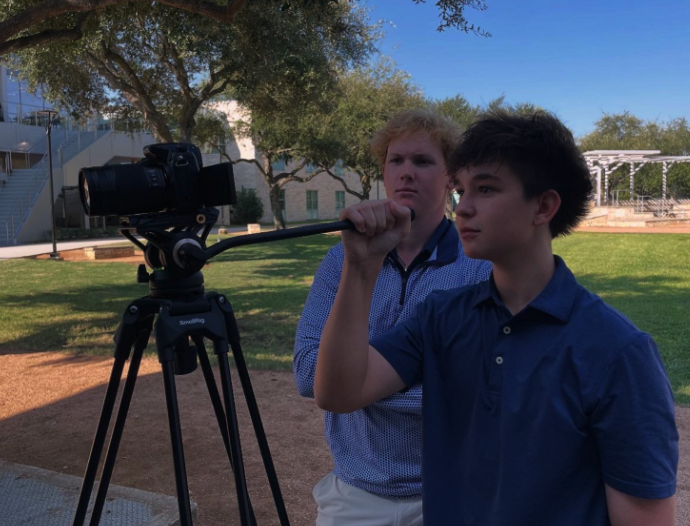Startups, investors, profit margins. Not exactly your typical high school vocabulary. But at Emery/Weiner’s first-ever Business Competition, those concepts were at the heart of a months-long journey into the world of entrepreneurship.
Held on April 1, the event brought together thirteen students, five professional judges, and some impressive business ideas. After three months of planning, research, and late-night pitch prep, student teams presented original startups to a panel of real-world investors in a “Shark Tank”-style setting.
The competition was created and led by juniors Blake Saikin and Cooper Ying through the newly formed Emery Business Club.
“We wanted to give students a real taste of entrepreneurship,” Saikin said. “This wasn’t just about having a fun idea. We asked them to build something that could actually work.”
To create a polished product, students followed a process that mirrored a real startup’s journey. First, each group identified a problem worth solving. From there, they brainstormed a solution, defined their target market, researched pricing, and built a cost structure that broke down fixed and variable expenses. They calculated contribution margins, figured out how many units they would need to sell to break even, and packaged it all into a five-minute pitch.
For sophomores Jonah Lerner, Sebastian Lerner, and Sam Slobin, that process turned into something bigger than just a project. Their business, Get Back in the Game (GBG), won first place after impressing the judges with its clarity, market need, and smart financials.
“Get Back in the Game is a concierge sports medicine solution for active young athletes,” Sebby Lerner explained. “We focus on preventing, treating, and recovering from sports injuries. It’s a subscription-based model that gives families 24/7 access to their dedicated sports medicine team.”
The group wanted to create something that combined convenience, personalization, and affordability. They saw a gap in the current youth sports medicine landscape and aimed to fill it.
“The process of coming up with a unique idea takes a little while to get started,” Sebby Lerner said. “But once you find your niche, everything starts falling into place. We spent a lot of time doing research, talking to people in the field, and building a plan that actually made sense.”
The pitch itself was polished and confident, the result of weeks of prep. According to Sebby, the team held six two-hour practice sessions leading up to the big day.
“When you’re going in front of professional people, you have to prepare,” he said. “We didn’t want to just talk through slides. We wanted to sound like we knew what we were doing.”
Sam Slobin said the team dynamic played a big part in making the process run smoothly. “We each brought something different to the table,” he said. “Jonah was great with the research, Sebby kept us focused on strategy, and I worked a lot on the visuals and making the presentation flow. It felt like we were running an actual startup.”
The judges noticed. The panel included Brad Staller (Partner at The Sterling Group), Kelly Hess (CEO of Compucycle), Alan Ying (Chairman and CEO of Original Nations), Todd Stern (Partner and co-founder of Hillstar Capital), and Mr. Stuart Dow (Head of School).
Hess, a seasoned executive, said she left the event seriously impressed.
“It honestly felt like I was sitting in a business school, not a high school,” she said. “The students had a real grasp of how to scale a business, analyze profitability, and define their market. Their confidence and preparation were incredible.”
The competition also featured strong efforts from teams including Ella Aruh, Lauren Hancock, Lauren Getz, Katherine Burke, Hadar Sagiv, Nina Teichman, Ben Litofsky, Nathan Hubbard, Noah Sonabend, and Levi Leibman. Every group brought something different to the table, and each was scored on problem clarity, market understanding, cost feasibility, uniqueness, and presentation quality.
For Cooper, seeing that level of professionalism from his peers was incredibly rewarding.
“It was really cool to watch our classmates step up and take it seriously,” he said. “Some teams had ideas that could actually go somewhere. That was the coolest part.”
The GBG team earned a cash prize along with a one-on-one mentorship session with a judge to explore next steps. But for Sebby, the biggest takeaway was how much he learned along the way.
“I didn’t realize how many details go into starting a business,” he said. “It’s not just the idea. It’s the research, the people you talk to, the work behind the scenes. That’s what makes it real.”
Since the success of the event, Ying and Saikin are already talking about making the competition an annual tradition. There is even discussion about adding a product development phase or bringing in investors for future rounds.
Whether or not students actually launch their businesses, one thing is clear: the entrepreneurial spirit at Emery is just getting started.
